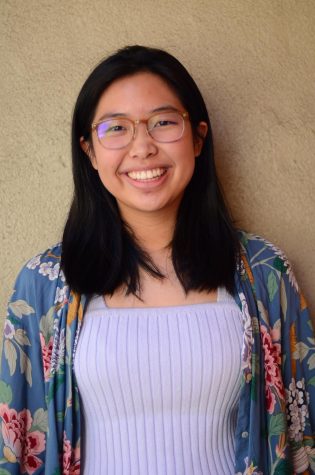IB’s present alternative to AP’s: As AP exams approach, some pursue alternative testing options
The International Baccalaureate (IB) program was founded in 1968 in Switzerland. “IB is a very suitable pathway for students who feel as though they are still open to try a range of things,” Emily Hyland, an IB student at Presbyterian Ladies’ College in Perth, Australia, said.
May 11, 2017
Many upper school students are preparing for the dozens of AP exams in the next two weeks—but other students in the U.S. and worldwide, at schools that use International Baccalaureate (IB) programs as an alternative to AP exams, are preparing for IB exams instead.
IB classes often focus on different areas of he same subject that APs do; both culminate in exams at the year’s end. Colleges often give credit for higher-level IB exams in addition to AP exams.
Founded in 1968 in Switzerland, the international IB program has since grown to over 4,000 schools worldwide. AP exams were offered in more than 21,000 schools in 2015, according to an annual participation report released by the College Board.
The IB Diploma Programme requires students to take a variety of courses, including humanities, languages, sciences and math.
“IB is a very suitable pathway for individuals who feel as though they are still open to try a range of things,” Emily Hyland, an IB student at Presbyterian Ladies’ College in Perth, Australia, said. Emily will graduate from high school in November 2019. “Students are available to more options and future career pathways, as they are taking up a multitude of subjects from different topics.”
The IB program’s requirement to take diverse courses restricts the focuses on specific subjects if a student has already chosen a major or is set on a set career path, however.
“The AP system is more a la carte, meaning you can choose to take AP classes in areas of your speciality and as many as you like. [IB] is an inclusive curriculum, meaning you take IB courses across the board in multiple subjects,” history teacher Damon Halback, who has taught at an IB program at the University of Massachusetts in Boston, said. “[The IB program] has got advantages in that it allows for deeper thinking and allows for essay driven instruction, but it has disadvantages because it is kind of all-or-nothing, meaning you have less ability to style the courses you take.”
Both APs and IBs offer challenging and in-depth courses and result in exams which tests students’ knowledge. However, as the Harker community is more connected to the AP program, the chance for switching curriculums is minimal.
“I would think that there’s a much better chance that we’re going to get rid of the AP program than just put a period at the end of that statement, rather than switching to IBs. I’m not saying that it’s a news flash. I don’t see that happening anytime soon, but I think that than switching to IB,” academic dean Evan Barth said. “I think that if you were to list positives and negatives of the AP program, the negatives on the external side becomes a metric that people measure themselves against the world. ‘How many AP classes you do have?’ I don’t think it would be really different, if it were IBs.”
This piece was originally published in the pages of the Winged Post on May 11, 2017.


















![“[Building nerf blasters] became this outlet of creativity for me that hasn't been matched by anything else. The process [of] making a build complete to your desire is such a painstakingly difficult process, but I've had to learn from [the skills needed from] soldering to proper painting. There's so many different options for everything, if you think about it, it exists. The best part is [that] if it doesn't exist, you can build it yourself," Ishaan Parate said.](https://harkeraquila.com/wp-content/uploads/2022/08/DSC_8149-900x604.jpg)




![“When I came into high school, I was ready to be a follower. But DECA was a game changer for me. It helped me overcome my fear of public speaking, and it's played such a major role in who I've become today. To be able to successfully lead a chapter of 150 students, an officer team and be one of the upperclassmen I once really admired is something I'm [really] proud of,” Anvitha Tummala ('21) said.](https://harkeraquila.com/wp-content/uploads/2021/07/Screen-Shot-2021-07-25-at-9.50.05-AM-900x594.png)







![“I think getting up in the morning and having a sense of purpose [is exciting]. I think without a certain amount of drive, life is kind of obsolete and mundane, and I think having that every single day is what makes each day unique and kind of makes life exciting,” Neymika Jain (12) said.](https://harkeraquila.com/wp-content/uploads/2017/06/Screen-Shot-2017-06-03-at-4.54.16-PM.png)








![“My slogan is ‘slow feet, don’t eat, and I’m hungry.’ You need to run fast to get where you are–you aren't going to get those championships if you aren't fast,” Angel Cervantes (12) said. “I want to do well in school on my tests and in track and win championships for my team. I live by that, [and] I can do that anywhere: in the classroom or on the field.”](https://harkeraquila.com/wp-content/uploads/2018/06/DSC5146-900x601.jpg)
![“[Volleyball has] taught me how to fall correctly, and another thing it taught is that you don’t have to be the best at something to be good at it. If you just hit the ball in a smart way, then it still scores points and you’re good at it. You could be a background player and still make a much bigger impact on the team than you would think,” Anya Gert (’20) said.](https://harkeraquila.com/wp-content/uploads/2020/06/AnnaGert_JinTuan_HoHPhotoEdited-600x900.jpeg)

![“I'm not nearly there yet, but [my confidence has] definitely been getting better since I was pretty shy and timid coming into Harker my freshman year. I know that there's a lot of people that are really confident in what they do, and I really admire them. Everyone's so driven and that has really pushed me to kind of try to find my own place in high school and be more confident,” Alyssa Huang (’20) said.](https://harkeraquila.com/wp-content/uploads/2020/06/AlyssaHuang_EmilyChen_HoHPhoto-900x749.jpeg)







